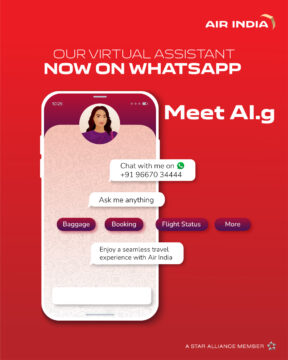Hotel owners and operators in India manage complex businesses. They face issues related to occupancy volatility, overwhelming amounts of data and complicated revenue streams. Coupled with these challenges are increasing demands from guests who seek personalised out-of-home experiences.
Personalisation can directly influence guest satisfaction levels and profitability when applied correctly by hotels. Hotels that offer high levels of customer service have been practicing ways of personalising a guest’s stay once they are at the property, by for example, suggesting a restaurant booking or theatre show that may match a return guest’s interests. However, less is being done to personalise a potential guest experience at the initial booking phase.
Hotels Can no Longer Compete on Standardised Pricing Strategies
The commoditisation of hotel products is currently at its peak. If guests book via travel portals or Online Travel Agencies (OTAs), the direct comparison of identical offers no longer shows the subtle or significant differences between hotels. In the current model, rooms are priced as units, and rates are determined by demand and availability. OTAs then display these rooms in a side-by-side, competitive marketplace format where little information is provided about any of the special qualities a room may have to offer.
For instance, if you’re shopping for a king-sized room at a five-star hotel with ocean views in Goa and a guest comes across three similar listings, they’ll most likely opt for the lowest-priced option—or maybe the one that allows free cancellation. What the booking channel can’t tell the guest is that there’s a room available with stunning sunset views that would really make their vacation an unforgettable experience. If only the guest knew!
For hoteliers, it offers new opportunities to create and engage personalised guest products to differentiate themselves in the market and attract guests based on what they want. For example, does the guest want a balcony, a view or a complimentary breakfast? These are preferences that are often prioritised ahead of the price. To personalise their experience, the customer is more likely to prefer individual attributes rather than a specific room type. Giving the guest the ability to choose what they want means the hotel must have a price for every combination.
Hotels today have access to extensive datasets beyond their own booking systems, such as Google analytics or data trends related to customer search and buying behavior. These provide hoteliers with the opportunity to personalise the offerings based on the target market, and consequently also adopt marketing strategies specific to channels. For example, if trends indicate that most of the visitors in Jaipur hotels are drive-ins, a personalised package should include an evening high tea or cocktail offer instead of airport transfers.
Depending on the information available on last-minute bookings in a market, the hotel’s commercial team can curate personalised offers and protect inventory for such arrivals. It not only enhances guest experience, but it also optimises hotel arrivals for short booking windows as seen in many drive-in markets.
Through a personalised approach to pricing, hotels can price any component based on the customer’s needs. It not only helps hoteliers monetise the guest experience, but it also increases the choice and level of personalisation to support guest comfort and satisfaction.
Guest Demand Drivers
Today, hoteliers need to personalise and proactively influence revenue opportunities throughout the customer journey. Those hoteliers who don’t take this approach risk business, with research showing 81% of hotel customers would be willing to switch their loyalty for a more personalised experience.
Understanding the customer begins at the dreaming stage – with 57% of travellers feeling brands should tailor their information, based on personal preferences or past behaviours right from the beginning. The ability to build an accurate picture of their behaviour based on data is key. Data from booking channels, room-type preferences, dining choices, spa bookings and loyalty programmes can help hoteliers better understand their guests so that more tailored packages can be developed that inspire return business.
Some hotel and resort owners are even using wearable technology today to provide added convenience to guests and collect valuable data. For guests, wearable devices provide access to an extra level of convenience. But for the hotelier, it provides a wealth of digital information on customer preferences that allows them to target customer needs, wants and desires in future encounters.
Personalised Offerings to Attract the Next Generation of Travellers
Many hoteliers hope to attract more millennial or Generation Z travellers, booking segments that are only going to grow in importance over coming years. With the key competitor for this segment being Airbnb, properties keen to attract guests from this demographic could improve their online presence and offer personalised accommodation deals that appeal directly to this segment. Hotel packages that appeal to millennials should be developed since they base their travels more around experiences rather than just destinations. A combination of rooms with food and beverage vouchers or entertainment tickets can be included.
Personalised Pricing Can Benefit Both the Buyer & Seller
Today’s hotel guests may appear to be fixated on price, but they want more than just a place to sleep, and whatever it is they desire, they want the highest quality version of it they can afford. Cost will always matter, of course, but hotels can reposition price as just one factor of the overall decision. With personalised pricing, each guest would be given more options in the online booking environment. They can select the individual components of a room they want and leave the ones they don’t, either spending extra or getting a cheaper rate in the process.
By implementing personalised pricing, hotels can separate and categorise all their products and services into components of value. Features that are currently invisible during booking could now be brought to the surface as a part of the decision-making process. It will help drive differentiation, meaning there will be less emphasis on direct price comparison with competitor products.
There is also power in choice, both for the buyer and the seller. With personalised pricing, potential guests will be able to tell a hotel how much they’re willing to pay, and hoteliers can, in-turn, monetise more of their assets.
Effectively while the hotel is confident on the profitability, they can also be assured that the potential guest or traveller has a great curated experience even before they arrive at the hotel, also confident that they have made the right choice at the right price. Loyalty of brand in making.

Murphy Mathew
Guest contributor Murphy Mathew is the APAC Solutions Engineer of IDeaS Revenue Solutions, a SAS company that provides cloud-based, advanced analytics solutions to the hospitality sector. Any opinions expressed in this article are strictly that of the author.












